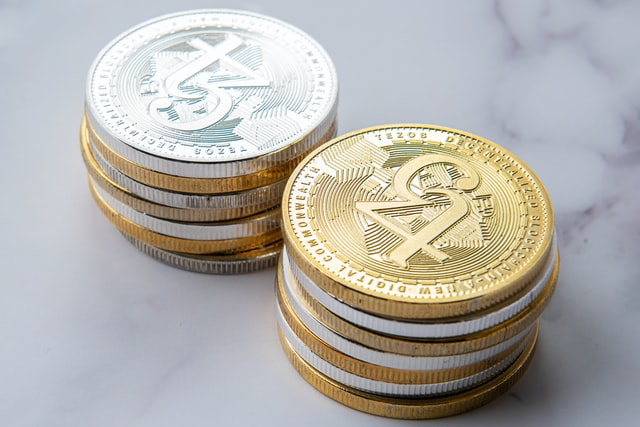Cryptocurrencies have been all over the news lately. With prices soaring and then crashing, it can be hard to keep track of what’s going on in the world of digital currencies. Along with all the hype and speculation, there is a lot of discussion about cryptocurrency regulations. In this blog post, we will explain what you need to know about the current state of cryptocurrency regulation. We will also discuss how these regulations could impact your investment in digital currencies.
1. What are cryptocurrency regulations and why are they important?
Cryptocurrency regulations are important because they provide guidelines for how digital currencies can be bought, sold, and used. These regulations can also help to protect investors from fraud and theft. In the past, there have been a number of scams and hacks involving cryptocurrencies. By having clear regulations in place, it will be easier to prosecute those who commit crimes involving digital currencies.
Cryptocurrency regulations can also have an impact on the price of digital currencies. For example, if a country decides to ban cryptocurrencies, the price of those currencies is likely to drop. On the other hand, if a country recognizes cryptocurrencies as legal tender, the price is likely to go up.

2. How do different countries regulate cryptocurrency, and what are the implications for investors and businesses?
The attitude of different countries towards cryptocurrency regulation varies widely. Some countries, like China and South Korea, have banned cryptocurrencies entirely. Other countries, like the United States, have taken a more hands-off approach. The implications of these different approaches are significant.
If you’re thinking about investing in cryptocurrencies, it’s important to be aware of the different regulatory approaches of different countries. If you invest in a cryptocurrency that is banned in your country, you may be subject to fines or even imprisonment. On the other hand, if a country recognizes cryptocurrencies as legal tender, businesses that accept them will have fewer restrictions and may enjoy some tax benefits.
3. What challenges does the cryptocurrency industry face in terms of regulation, and how will this impact its future growth?
The cryptocurrency industry faces a number of challenges when it comes to regulation. One of the biggest challenges is that cryptocurrencies are difficult to categorize. They don’t fit neatly into any one category, which makes them difficult to regulate.
Another challenge is that the cryptocurrency industry is constantly changing. New cryptocurrencies and blockchain technologies are being developed all the time, which makes it difficult to keep up with the latest innovations. This means that regulators are constantly playing catch-up, which can stifle innovation.
The final challenge is that different countries have different approaches to cryptocurrency regulation. This creates a patchwork of regulations that can be confusing and difficult to navigate.
Despite these challenges, the cryptocurrency industry is still expected to grow rapidly in the years ahead. This growth will be driven by increasing acceptance of cryptocurrencies as payment methods and by the development of new blockchain technologies.
4. What do investors need to know about the regulatory landscape before investing in cryptocurrencies or blockchain projects?

Before investing in cryptocurrencies or blockchain projects, investors need to be aware of the regulatory landscape in their country. They should also research the regulations of any countries where they plan to do business.
It’s important for investors to be aware of the risks associated with investing in cryptocurrency and blockchain projects. Regulations can change at any time, which could impact the price of a digital currency or the viability of a blockchain project.
Investors should also be aware that some countries have banned cryptocurrencies entirely. If they invest in a cryptocurrency that is banned in their country, they may be subject to fines or even imprisonment.
5. Are there any benefits to stricter cryptocurrency regulations, or could they have a negative impact on innovation in the space?
There are benefits and drawbacks to both stricter and more lax cryptocurrency regulations. On the one hand, stricter regulations could help to protect investors from scams and fraud. They could also help to legitimize cryptocurrencies as an investment asset.
On the other hand, too much regulation could stifle innovation in the cryptocurrency industry. It could also prevent legitimate businesses from operating in the space.
The best approach is likely somewhere in the middle. Regulations should be designed to protect investors and prevent fraud, but they should not be so restrictive that they stifle innovation.
6. How will regulators respond to increasing interest in cryptocurrencies, and what changes can we expect in the near future?
Regulators are starting to take notice of cryptocurrencies and blockchain technology. In the past, they have been slow to respond, but that is changing fast. We can expect to see more regulations in the near future as regulators try to catch up with the rapidly evolving cryptocurrency industry.
Some countries are taking a more restrictive approach, while others are trying to attract businesses with friendly regulations. It is still too early to say which approach will be more successful in the long term.
In the meantime, investors should do their own research and consult with a financial advisor before investing in any cryptocurrency or blockchain project. Regulations can change at any time, so it’s important to stay up-to-date on the latest news and developments.
In order to stay ahead of the curve, it is important for investors and consumers alike to keep up with the latest cryptocurrency regulations. For more tips on how to stay safe when investing in cryptocurrency or when using digital currency, be sure to check back often or subscribe to our blog. We will continue to update you on all the latest news and information surrounding this rapidly changing industry.

Leave a Reply